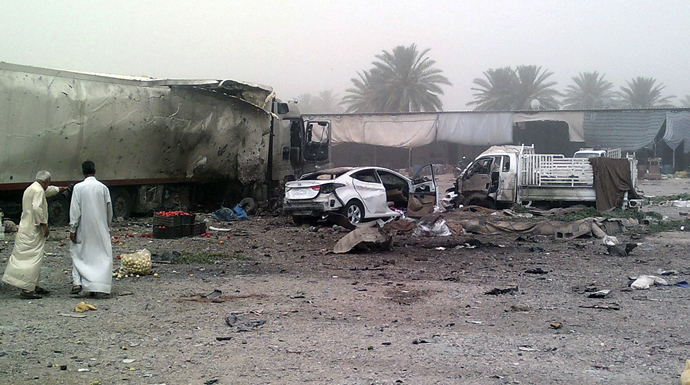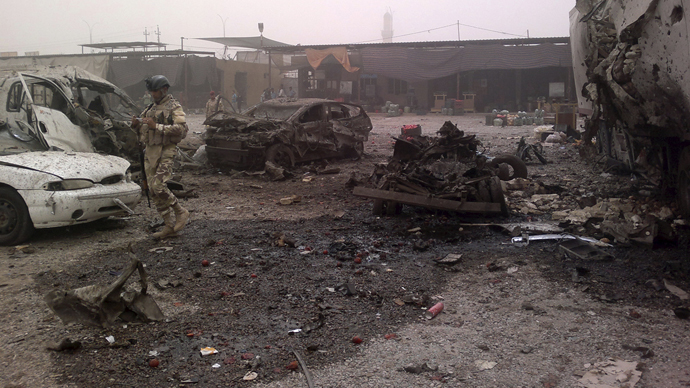A wave of attacks across mostly Sunni areas of Iraq has claimed at least 70 lives, injuring more than 230. The resurgence comes after several days of calm. Amid failure to tackle political problems, there are renewed fears of a full-scale sectarian war.
No one has claimed responsibility for Monday's violence, but Al
Qaeda-linked Sunni militants are known for the tactic of
attacking security forces, as well as their own religious group –
supposedly to provoke further bloodshed with the Shiites.
The deadliest attack was carried out in the northern city of
Mosul, where five car bombs targeting security forces left 29
dead and 80 wounded, officials say. A curfew was imposed,
following the violence.
"We have received many corpses…most of them were members of
the security forces," said a doctor at Mosul General
Hospital.
Other Sunni area attacks included Saddam Hussein’s hometown of
Awja, as well as the towns of Dour and Taji, where 13 people have
been killed.
In Judaida al-Shat, a town in the Diyala province, a suicide
bombing and two car bombs were set off in a coordinated fashion
at a market, resulting in 13 deaths.
Witnesses blame Al Qaeda. A vegetable salesman told AFP that
"Al Qaeda…is trying to sow religious hatred in our region”
and that in this community, his group (the Shiites) “lives
peacefully with the Sunnis.”

Ten people died in and around Kirkuk, a northern province, while
an explosion in the mixed town of Maidan and one in a
predominantly Shiite neighborhood in the capital Baghdad has
killed five people.
The most at-risk areas for violence are considered to be ones
where the Sunni, Kurdish and Turkmen ethnic groups share
territory. The vast lands are being claimed both by the central
government and the autonomous Kurds.
Violence began to spark up again in April-May, which
saw attacks deadlier in numbers than any that have taken place
since 2008. Experts are already comparing the latest surge to the
bloodiest years of 2006-2007.
The Sunni Arab minority is unhappy with their place in the new
political system, and their December 2012 protests have carried
over into 2013, coinciding with a spike in violence at the
beginning of the year.
Prime Minister Nuri Maliki has tried to ease political tensions
by staging a meeting with two of his biggest political opponents
– the Sunni speaker of Parliament and the president of the
autonomous Kurdish region. Nothing has yet come of the effort,
and it is widely believed that political disagreements only serve
to fan the flames of sectarian violence.

